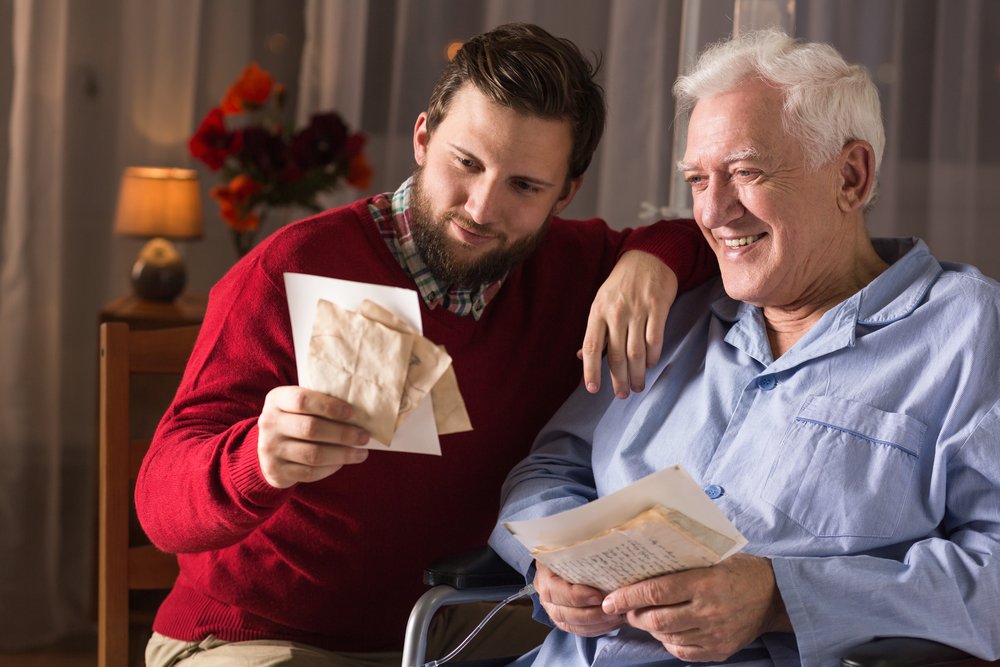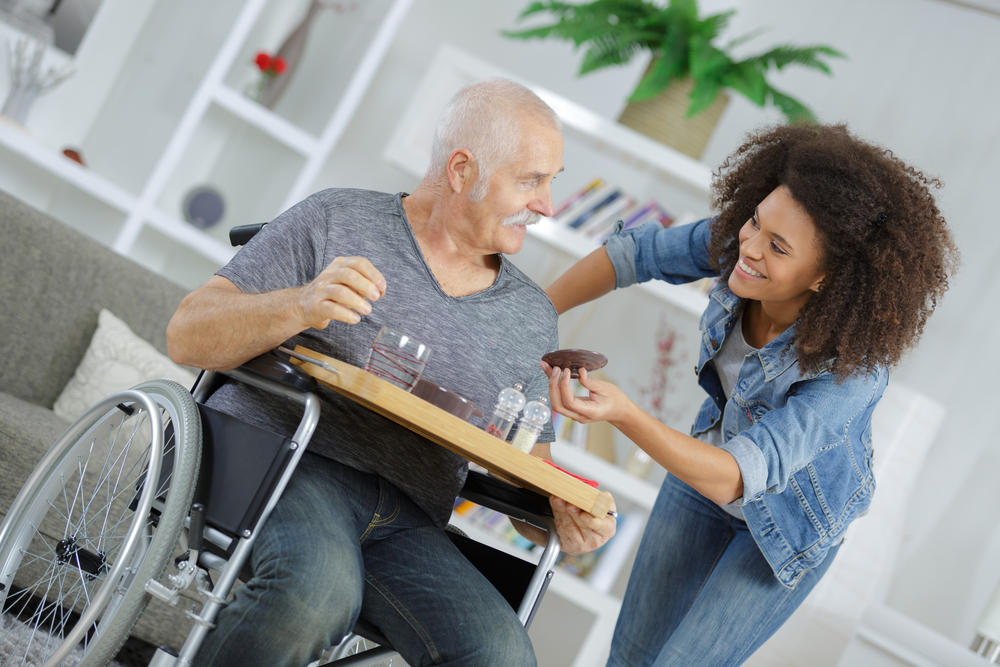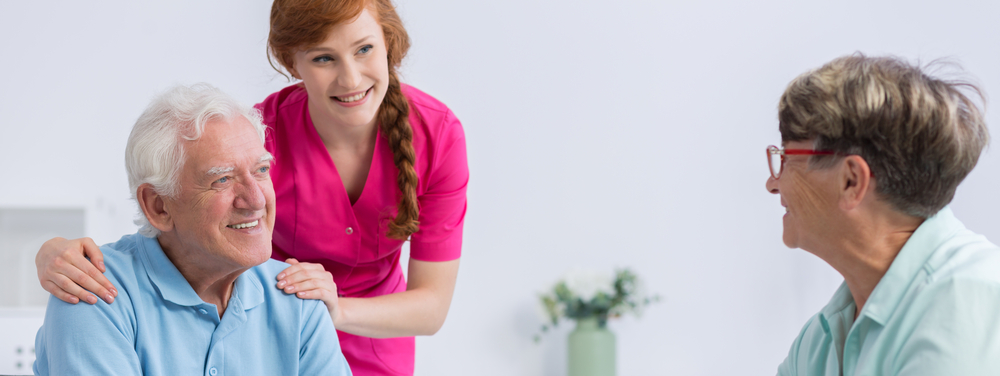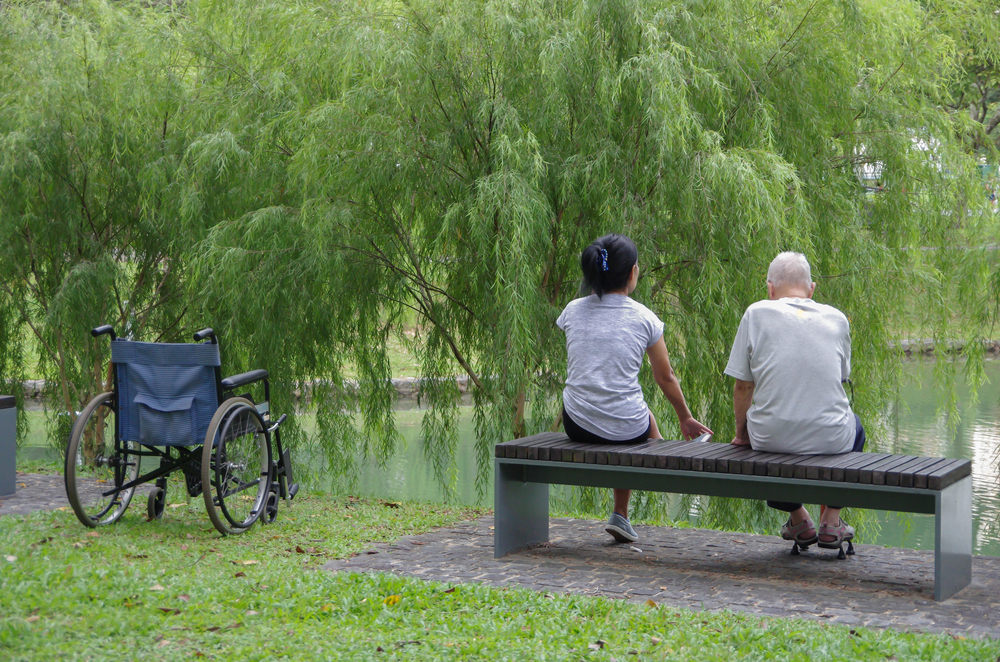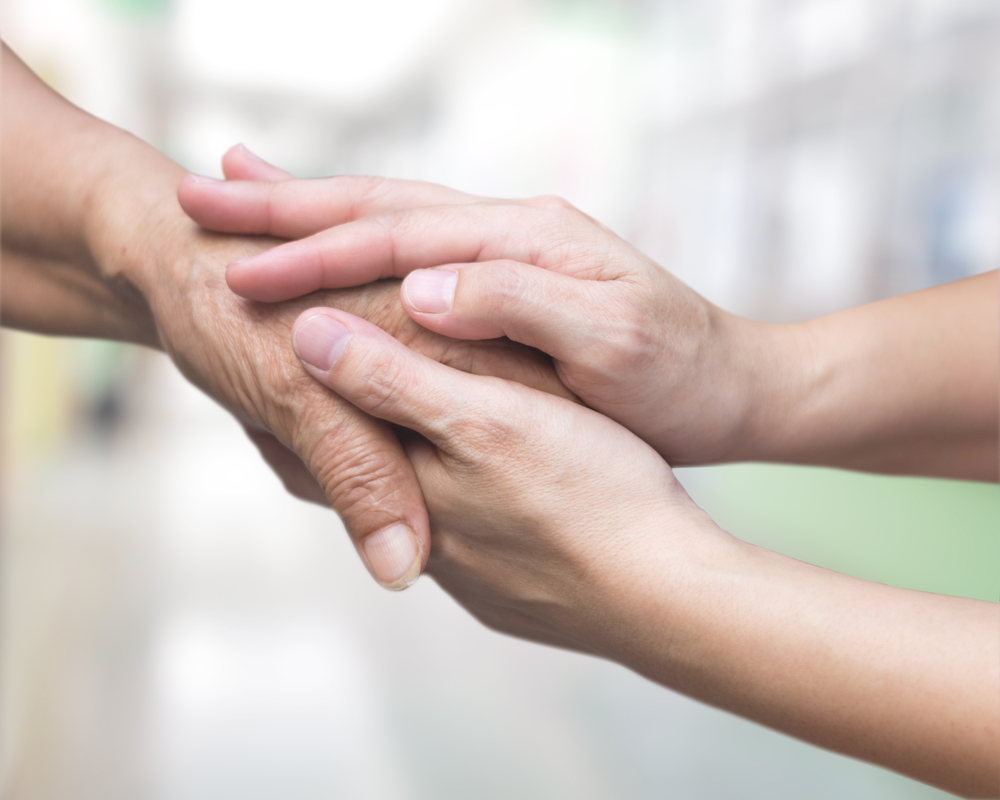A loved one’s diagnosis of Alzheimer’s disease can be devastating, especially for their family caregivers. Unlike other diseases, Alzheimer’s and dementia present symptoms very differently than other illnesses. It takes away what they treasure most: their memories and their identity. It’s understandable to see how difficult this can be to comprehend, for both those living with dementia, and those who love and care for them. If your loved one has just received an Alzheimer’s diagnosis, you’re likely to feel apprehension and about the future – not just for your loved one, but yourself.
An even bigger question is how can you take good care of yourself, all while providing the demanding care and assistance that your family member will be in need of? Alzheimer’s disease or other dementias means your loved one may experience changes in their ability to care for themselves, their personality, and their personal relationships. These changes are often the hardest for families to face.
Ways That You Can Help Manage Your Role As Caregiver
It can take a lot of patience and flexibility to get rid of the frustration you may feel as caregiver, especially when it comes to understanding how to help your loved ones who are living with dementia or Alzheimer’s disease. But there are some helpful ways to approach the difficult role as caregiver.
The right approach to caring for your loved one with Alzheimer’s disease is to maintain their quality of life as best as possible. By knowing key information, some of their most important life experiences, can aid in the role of caregiver. People with dementia often use experiences from the past to make sense of the present, so by knowing and using the information, it will help you create meaningful activities, and provide personalized care.
Early Stage Caregiving:
“Early stage” refers to people who are diagnosed with Alzheimer’s disease or related disorders in the beginning stages of the disease. A person in the early stages may experience mild changes in the ability to think and learn, but he or she continues to participate in daily activities and give-and-take dialogue. To others, the person may not even appear to have dementia.
Initially in your role as caregiver, you may act more like a “care partner” than a caregiver. Your provide support, love and companionship. You are there to help with daily life and to help the person with Alzheimer’s plan for the future. The degree of assistance needed from a care partner in this stage varies, since no two people are alike in their progression of this disease. For example, some people may require help with memory. He or she may need help with keeping appointments, remembering words/names, recalling familiar people or places, managing money, ensuring they are taking their medications, and just basically doing familiar tasks.
As the loved one of someone with Alzheimer’s, you probably already know many of your loved one’s important experiences — and not is the time for you to start finding out more. Help them to recall their most vivid memories of when they were growing up with their family, or reflect on their accomplishments and careers.
In the beginning stages of Alzheimer’s, there are a few ways that you can gather some important details from your loved one:
- Asking them directly: You also may observe their non-verbal cues, facial expressions and gestures.
- Observing their surroundings: Even though you are likely to be familiar with your loved one’s surroundings, once you start to ask more questions about an object you will learn much more to the story.
Mid-Stage Caregiving:
Further, there are other things to keep in mind when assuming the role of caring for your family member living with Alzheimer’s or dementia. Many of the most important ways to establish a good routine on day-to-day living are:
- Scheduling: In order to keep your parents or loved ones safe, you have to establish a routine that will make your ordinary day more predictable. Schedule doctor appointments, bath times, and even dining times for your loved ones. A simple routine can help your parents become familiar with things that should be done.
- Explain regular, everyday things: For example, something as simple as naming a drawer based on what is inside, will most likely help your loved one put things in the correct. Making everyday tasks as simplistic as possible is key – this will ease things for both you and your loved one.
- Remove danger: Remove things that could endanger loved ones, for example, knives, lighters and matches.
- Use technology: Luckily these days we have access to some amazing technology. You can use a monitoring service that will track a GPS location and monitor calls and messages. You can also help take care of your loved one with a home monitoring app that will give you access to your home and inform you of any unusual power activity.
- Create limitations: provide choices, but keep them limited. Also limit your instructions to one step at a time. If you are having a conversation, avoid surrounding distractions like the TV or electronic devices. It will help your loved ones stay focused on the conversation
Long-Term Caregiving:
Unfortunately as the disease progresses, it can become increasingly hard to help look after your family with dementia. And there eventually comes a time when we cannot cope with the disease or be the sole caregiver on our own. As upsetting as it may be to admit, when things become too advanced for you to provide adequate care, you will need to explore other options to receive help for your loved one. Sometimes it is as simple hiring a nurse for those who need assistance for a couple of hours a day; but other times more advanced, long term care is required in order to keep your loved one safe and healthy. These facilities places are often the best place for a loved one, and they will be in the best hands possible with professional caregivers who are experienced and trained to care for Alzheimer’s and dementia patients.
Linda, our Dementia/Senior Advisor at Unicity, takes many important steps to come up with a personalized management plan by doing the following:
- First, an assessment of the patient is made, as well as taking time to listen to the client’s needs.
- Next, we utilize validation. We will ask the client to tell us about what has happened vs. reality. Many Alzheimer’s patients are living in their mind many years ago. We allow that, and do not confront them with the reality.
- We allow patients to do the things they are capable of, even if it takes a long time or isn’t done well.
Additionally, our Senior Advisor creates an activity plan for our clients:
- We design cognitive exercises based on the patient’s needs and abilities.
- Together with the patient we play trivia games, and games such as finish the phrase. We also hold history discussions (since dementia patients are often better at a historic discussion, rather than trying to hold a current events discussion.)
- We will assist clients that have problems with coordination by incorporating things such as ring toss, play dough, and writing exercises.
- For clients that were in trades such as building, we use items such as Legos in order to incorporate building activities into the client’s activity plan.
- We incorporate materials related to things our clients once did, whether it be things they used in their careers, or things incorporated from activities they once enjoyed.
- Together with our clients, we sing old songs that they remember, in order to encourage memories.
- We also encourage our clients to reminisce about old movies, actors, and historical moments.
Care For The Caregiver
Alzheimer’s disease is called a family disease; watching a loved one slowly decline affects everyone. Thus, an effective treatment plan will address the needs of the entire family. Emotional support, counseling, resource information, and educational programs about Alzheimer’s disease all help a caregiver provide the best possible care for a loved one.
Further, caregivers must focus on their own needs, take time for their own health, and get support and respite in order to be able to sustain their well-being during this difficult journey.
Caregivers can learn how to manage challenging behaviors, improve communication skills, and keep the person with Alzheimer’s safe, if provided with the right training. By learning skills through caregiver training and support group (online or in person) can be invaluable. Participation in these groups can allow the caregiver to feel less alone and be a part of a community of those going through a similar situation with their loved ones.
It’s can be hard to know where to begin, and to admit and realize your loved one needs assistance because they are no longer as self-sufficient as he or she once was. So the earlier you get support, the better.
It can feel overwhelming to see beyond the care tasks that await you each day, but the most important advice anyone can receive as a caregiver is to take care of yourself.
